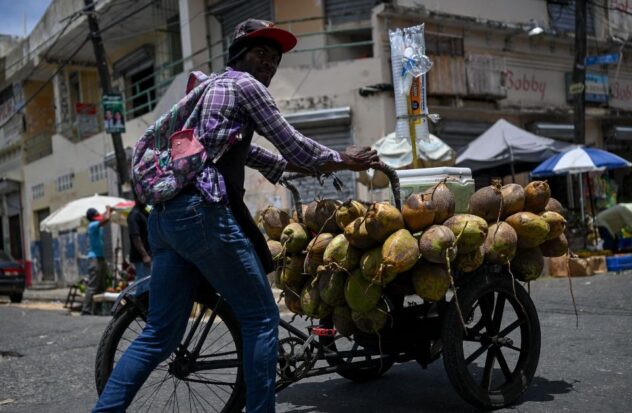SANTO DOMINGO.- Haitians who reside in Dominican Republic They are worried that the President Luis Abinaderwho was re-elected last Sunday for a new term, intensify his tough policy against immigrants from the neighboring country, devastated by a chronic crisis that is now worsening with the violence imposed by gangs.
Abinader, 56, swept the presidential election on Sunday, with an advantage of nearly 30 points over the second. His victory is a vindication of his tough policy against migration of the impoverished Haiti.
Since coming to power in 2020, the president has imposed a firm policy against Haitian migration: in addition to raids and expulsions, he reinforced the presence of the armed force on the border and built a 164 km wall between the two countries. which he promised to extend in his second term.
More acidic government
Many haitians With papers in order, they run the risk of falling into illegality, amid bureaucratic obstacles to renew visas and residence permits, which are very expensive for these people who mostly live in poverty.
It happens to Niclas Legrand, 60 years old, in Santo Domingo since 1987. His residence card expired in 2022 and since then he only has a small piece of evidence indicating that his process is in progress.
“God willing, Haiti will be fixed and I will return,” says Legrand, in his sale of handkerchiefs. “Although I’m calm here,” the merchant notes.
In theory, his case does not place him at risk of deportation, but the specialized NGO Socio-Cultural Movement for Haitian Workers (Mosctha) He assures that he has received complaints from people who were expelled even though they had their document pending.
“The current government has been the most acidic on the immigration issue,” laments Joseph Cherubin, president of Mosctha, who sees “a possibility” that the harshness of the authorities will decrease.
“What the president was doing was because of the electoral situation because the Haitian issue is important when there are elections, it has been historically,” he says.
The tense relationship between both countries dates back to 1822, when Haiti colonized Dominican Republic, which regained its independence 22 years later. Some Dominicans, in fact, often speak today of Haitian immigration as the “second invasion.”
They remain silent
Many haitians They live in overcrowded conditions and work in informal jobs in the “little Haiti”, a chaotic commercial sector in the center of Santo Domingo. Some buildings have cardboard roofs, facing warehouses with peeling walls. It sells everything from sugar cane to used appliances, including clothing and vegetables.
The majority of Haitian vendors prefer to remain silent, and thus avoid their slightly French accent giving them away to the authorities, who raid the place daily to capture those who reside irregularly and deport them.
Johan Pérez, 32, looks after cars parked on a street in “little Haiti.” With a Dominican mother and Haitian father, he worries that “anti-Haitian” sentiment will increase in the country during Abinader’s second term.
“Things are a little tougher,” says Pérez, as he signals a vehicle to park. “The guy is stronger now,” he adds, referring to the president’s victory on Sunday.
Despite the tensions, there are many Dominicans who refer to their Haitian neighbors as “brothers” and value the work they do, which represents 30% of the workforce in livestock, agriculture and construction in the Dominican Republic. , according to the United Nations Population Fund.
“Those who are around here, what they do is work,” says Lidia Fernández, a 64-year-old spice seller. “We don’t do the jobs that Haitians do,” she said.
Source: With information from AP

